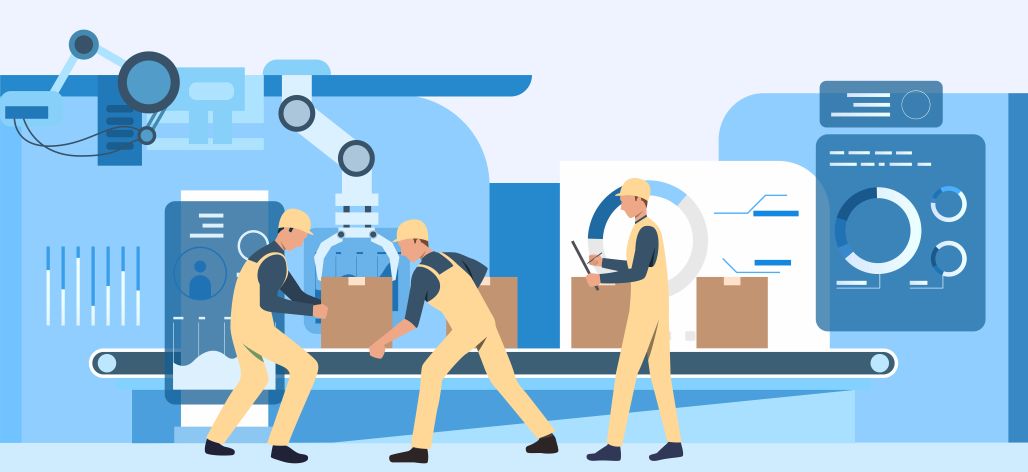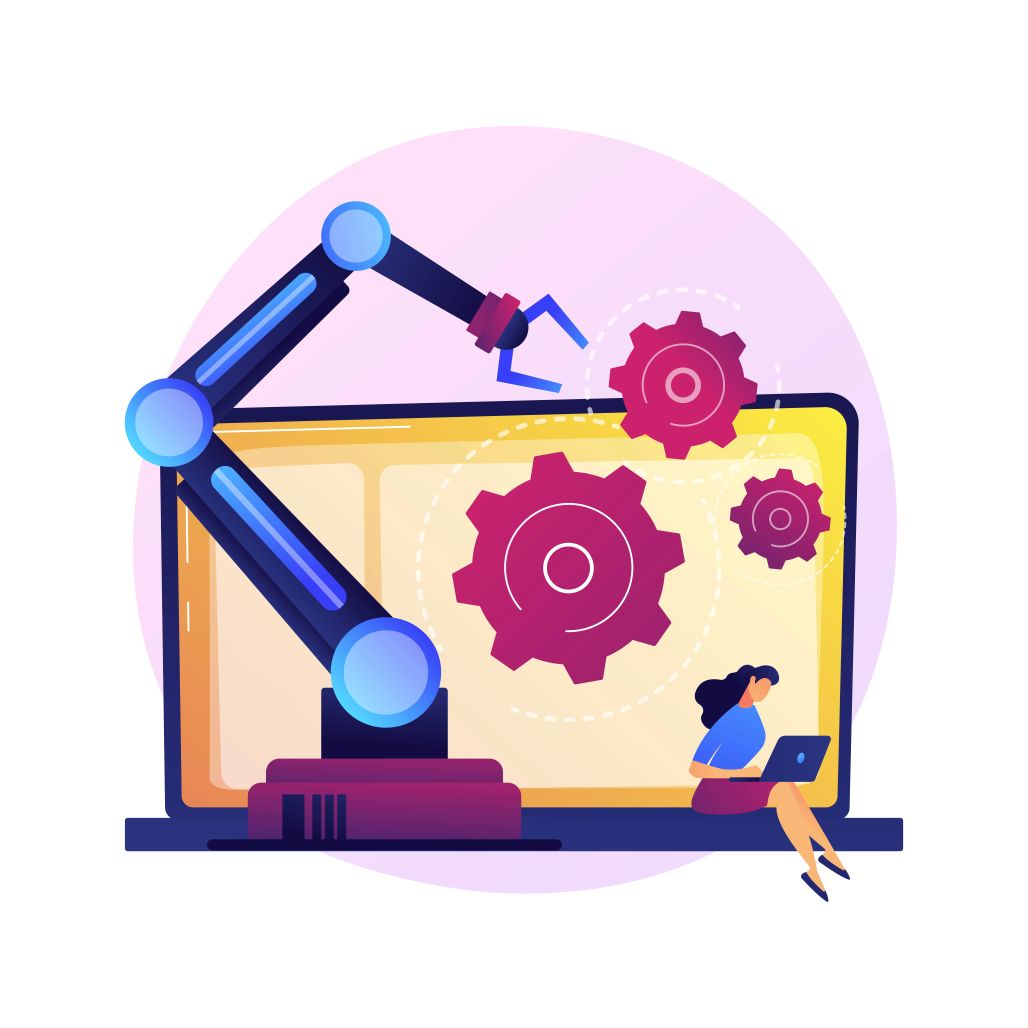The Changing Face of Manufacturing
Manufacturing in 2025 is no longer just about machines, assembly lines, and manual labor. The rise of automation, AI, IoT, and smart manufacturing solutions is fundamentally transforming how factories operate, how processes are managed, and how employees contribute to overall productivity. Modern production environments demand a workforce skilled not only in traditional techniques but also in digital tools, data analysis, and safety protocols.
Platforms like Calibr, a best LMS for manufacturing, are enabling companies to deliver innovative manufacturing solutions that do more than train employees—they enhance safety and streamline compliance, and this improves operational outcomes. By using Calibr’s LMS for manufacturing, companies can provide structured learning paths, track skill development, and deliver role-specific content that empowers employees to perform confidently from day one.
Explore Calibr’s LMS for manufacturing today to upskill your workforce and drive business excellence.

Challenges in Modern Manufacturing
Today’s manufacturing landscape presents a mix of opportunities and challenges for organizations:
Rapid Technological Advancements: Emerging technologies require employees to acquire new manufacturing skills quickly. Without proper training, companies risk underutilized machinery, production delays, and reduced efficiency.
Increasing Safety and Compliance Requirements: Standards set by OSHA, FDA, EPA, and other regulatory bodies are stricter than ever. Failure to meet these requirements can result in workplace accidents, legal penalties, and reputational damage.
Time-Consuming Upskilling and Onboarding: Traditional onboarding methods are often slow, inconsistent, and resource-intensive, making it challenging to prepare employees for complex production processes.
Manufacturing employees will require significant upskilling or reskilling by 2025 to keep pace with Industry 4.0 transformations. For HR leaders and top managers, this means adopting smarter training solutions is no longer optional—it’s essential.
The Role of Innovative Manufacturing Solutions
Innovative manufacturing solutions are no longer just about optimizing production—they’re about empowering employees, reducing risk, and future-proofing operations. Platforms like Calibr provide a dynamic, flexible learning environment where employees can access role-specific training, track their progress, and ensure compliance with industry standards.
Companies leveraging the best LMS for manufacturing report numerous benefits:
Higher Employee Retention: Structured and engaging training reduces turnover by making employees feel competent and confident.
Faster Onboarding: New hires quickly learn processes, safety protocols, and compliance requirements without burdening HR teams.
Reduced Compliance Violations: Automated tracking and refresher courses help employees stay up-to-date with evolving regulations.
A Deloitte report on manufacturing trends shows that combining automation with effective workforce training can boost operational efficiency by up to 30%. By integrating Calibr’s LMS for manufacturing into daily operations, companies not only develop critical manufacturing skills among employees but also create a safer, smarter, and more productive workplace.
External Facts & Industry Insights
To understand how innovation is transforming the manufacturing sector, here are some verified insights from leading global studies and industry reports:
Deloitte Smart Manufacturing Survey
Reports show that manufacturers adopting AI-driven and automated systems have achieved up to 20% higher production output and 15% unlocked capacity — proving how automation directly drives measurable productivity gains.
( Smart Industry – Deloitte Smart Manufacturing Survey)McKinsey on Industry 4.0 Efficiency Gains
According to McKinsey, companies implementing smart factory practices see 30–50% reductions in machine downtime and 10–30% increases in throughput, demonstrating the power of data-led operations.
(McKinsey – Capturing the True Value of Industry 4.0)Deloitte Insights on Workforce Productivity
Smart manufacturing initiatives deliver 20% improvements in both output and workforce efficiency, driven by digital training tools and automated workflows.
( Robotics and Automation News – Deloitte Report)McKinsey on Equipment Effectiveness
Analytics-enabled manufacturing plants have improved Overall Equipment Effectiveness (OEE) by 11%, showing how digital systems optimize performance and reduce errors.
(McKinsey – Transforming Advanced Manufacturing Through Industry 4.0)
Top 10 Innovative Manufacturing Solutions in 2025

1. Automation and Robotics Integration
Automation and robotics have transformed modern manufacturing floors by performing repetitive, high-precision tasks more efficiently than humans. This shift requires employees to develop advanced manufacturing skills, including programming, operating, and maintaining robotic systems. Platforms like Calibr, a best LMS for manufacturing, provide interactive training modules that simulate real-life operations, helping employees gain hands-on experience without disrupting production. Factories that combine automation with structured workforce training see productivity gains , highlighting the importance of integrating technology training into employee development.
2. AI-Powered Predictive Analytics
Predictive analytics uses historical and real-time data to anticipate equipment failures, optimize production schedules, and maintain product quality. Employees equipped with training through Calibr’s LMS for manufacturing can interpret these insights and act proactively to prevent downtime or defects. This also helps managers make informed decisions based on data patterns rather than guesswork.
3. Digital Twin Technology
Digital twins create virtual replicas of physical machinery and production processes, allowing employees to test scenarios safely before implementing them on the shopfloor. With Calibr’s LMS, employees can engage in simulation-based training, troubleshoot potential issues, and learn manufacturing skills without risking production errors or safety incidents. Companies using digital twin technology experience efficiency improvements , emphasizing how critical hands-on, risk-free learning is for operational success.
4. IoT and Remote Monitoring
The Internet of Things (IoT) connects machinery, sensors, and production systems to provide real-time insights into operations. Employees trained through Calibr LMS for manufacturing can interpret sensor data, detect anomalies, and take preventive actions to avoid breakdowns or quality issues. This approach increases workplace safety, ensures consistent product quality, and supports data-driven decision-making.
5. Sustainable Manufacturing Practices
Sustainability is no longer optional—companies are expected to reduce waste, save energy, and minimize environmental impact. Employees need training in eco-friendly production methods, energy-efficient operations, and regulatory compliance. Calibr’s LMS for manufacturing provides modules that cover sustainability best practices, enabling employees to implement green initiatives while maintaining production efficiency. Forbes highlights that sustainable practices not only reduce costs but also enhance brand reputation, showing the importance of incorporating manufacturing skills in sustainability-focused training programs.
6. Smart Quality Management
Consistent quality is a cornerstone of manufacturing success. Employees must understand inspection protocols, process documentation, and operational standards. Platforms like Calibr, a best LMS for manufacturing, offer interactive modules and SOP-based courses that help employees develop these manufacturing skills efficiently. By training staff on quality standards, companies reduce defects, improve customer satisfaction, and maintain regulatory compliance.
7. Advanced Safety Solutions
Safety remains a top priority in manufacturing. Workplace accidents can be costly, both financially and in human terms. Platforms like Calibr provide safety LMS and LMS safety training, automating compliance training for OSHA, FDA, and EPA regulations. Employees receive automated reminders for refresher courses and certifications, ensuring ongoing compliance. OSHA reports that properly trained employees reduce workplace incidents, demonstrating the critical role of continuous, LMS-based safety education.
8. Continuous Learning and Upskilling
The manufacturing landscape evolves rapidly, making ongoing skill development essential. Employees need to stay updated on the latest tools, machinery, and processes. Using the best LMS for manufacturing, like Calibr, companies can deliver micro-learning modules, role-specific courses, and skill assessments. Continuous learning not only ensures employees remain adaptable but also enhances retention and productivity.
9. Flexible Manufacturing Systems
Flexibility in production is vital to meet fluctuating demand and introduce new products efficiently. Employees must be trained to handle multiple machines and workflows. Calibr LMS for manufacturing allows employees to learn these processes interactively, improving adaptability and minimizing errors. By integrating training on flexible systems, manufacturers ensure that their workforce can shift quickly between product lines without compromising quality or safety. IndustryWeek emphasizes that flexible production paired with effective training increases output efficiency significantly.
10. Collaborative Workforce Platforms
Collaboration across departments fosters problem-solving, innovation, and productivity. Training employees in communication, teamwork, and leadership is essential. Calibr’s LMS for manufacturing includes modules that focus on collaboration skills while also teaching technical manufacturing skills. Companies that promote collaborative learning see drastic improvement in overall productivity. LMS platforms like Calibr ensure employees work cohesively, share knowledge, and contribute to operational excellence.
Benefits of Innovative Manufacturing Solutions
Enhanced Operational Efficiency: Automation and training reduce errors and increase throughput.
Workforce Skill Development: Employees gain critical manufacturing skills required for modern processes.
Compliance and Safety: Safety LMS modules keep teams up-to-date with OSHA, FDA, and EPA standards.
Sustainability and ESG Compliance: Training on sustainable practices ensures operations meet modern regulatory expectations.
Standardized Training Across Locations: Platforms like Calibr LMS for manufacturing centralize learning, making onboarding and upskilling consistent.
Bringing it all together
Adopting innovative manufacturing solutions is essential for companies aiming to thrive in 2025. With manufacturing software solutions like Calibr, employees gain the skills and knowledge needed for safety, efficiency, and compliance. Platforms like Calibr make training scalable, engaging, and data-driven, enabling HR leaders and top managers to build a resilient, future-ready workforce.
Next Steps:
Book a demo to explore Calibr’s innovative manufacturing solutions

Vivetha is a digital marketing professional specializing in content marketing and SEO. She focuses on developing optimized, high-quality content that improves search visibility, supports brand objectives, and drives measurable results. With a structured and analytical approach, she ensures content aligns with business and audience needs.

